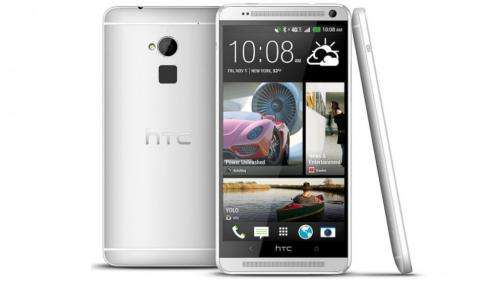HTC announced at Mobile World Congress on Monday its new Power To Give project, which aims to donate processor power to scientific research. Planning on bringing together the power of millions of smartphones, the Android for altruism initiative is in the spirit of volunteer distributed computing, set to harness the collective processing power of Android smartphones. The distributed computing project involves a new Power To Give app, expected to land on Google Play shortly. How will this help? HTC's promotional video, against a background music of gentle piano ripples, notes that research scientists all over the world are searching for answers to some of our biggest questions, such as designing new proteins to treat cancer or breaking down toxic compounds in the environment. With the HTC Power To Give initiative, the video tells viewers "you can help."
HTC Chairwoman Cher Wang said in the Monday announcement, "We want to make it possible for anyone to dedicate their unused smartphone processing power to contribute to projects that have the potential to change the world."
The app in the Google Play store will initially be compatible with HTC One and HTC Butterfly phones. HTC also said it plans, as the beta trial progresses, to make the app more widely available to other Android smartphone owners.
After downloading the app, smartphone owners can select the research program of their choice, to divert a proportion of their phone's processing power. HTC Power To Give will then run while the phone is charging and connected to a WiFi network. The app will not run the battery down as the process takes place while the phone is connected and plugged in. Tapping into the processing capabilities of a global network of smartphones is suitable for a number of projects where finding answers to complex questions may otherwise be handled by high-powered computers at higher cost. HTC said that, with enough participation, the processing power of the phone method could be quite significant. HTC said 1 million HTC One smartphones, working towards the Power To Give, could provide processing power similar to that of "one of the world's 30 supercomputers (one PetaFLOP)."
Wang called attention to analyst estimates that over 780 million Android phones had been shipped in 2013 alone. "Imagine the difference we could make to our children's future," she said, "if just a fraction of these Android users were able to divert some of their unused processing power to help find answers to the questions that concern us all."
The Power To Give program has been developed in partnership with Dr. David Anderson of the University of California, Berkeley. He is credited as the inventor of the Shared Computing Initiative BOINC, which stands for Berkeley Open Infrastructure for Network Computing. The BOINC website explains BOINC as a software platform for volunteer computing and desktop Grid computing. As the site details, HTC's initiative will not be the first volunteer computing project. That distinction belongs to GIMPS (Great Internet Mersenne Prime Search), which started in 1995. Other projects include SETI@home. The BOINC site defines volunteer computing as an arrangement in which people (volunteers) provide computing resources to projects, which use the resources to do distributed computing and/or storage.
More information: www.androidcentral.com/put-you … c-power-give-program
© 2014 Phys.org






















